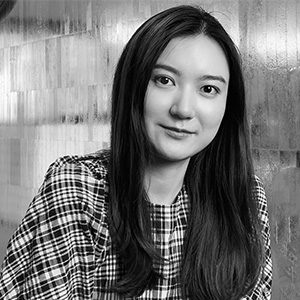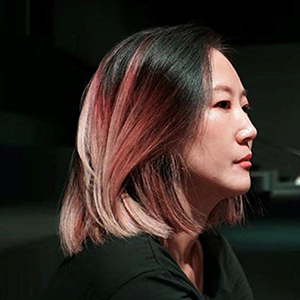NUS-SUTD PhD Symposium in Architecture

DESIGN COMPUTING AND TECHNOLOGY
Time: 09:30AM – 12:00 PM
Venue: Seminar Room 03, SDE1 Floor 4
Reviewers: Yuan Chao and Siu-Kit Lau
Binyu LEI
UNDERSTANDING 3D CITY MODELS AND DIGITAL TWINS
Abstract: The presentation includes two parts. The first one is about our recent research project, called 3D city index. We develop a holistic and comprehensive 4-category framework ‘3D City Index’, encompassing 52 criteria to identify key properties of 3D city models, enabling their measurement and benchmarking, and suggesting usability. The framework is used to evaluate 40 authoritative 3D city models, and derive quantitative and qualitative insights that enable a comprehensive and structured understanding of the landscape of semantic 3D geospatial data. The work is designed to continuously measure datasets and it can be applied also to other instances in spatial data infrastructures, for example, digital twins.The second part is our current work, to identify challenges to the implementation of digital twins. To accomplish our goal, this work is designed with a bifurcated, holistic, and rigorous approach, combining a systematic review of research papers and an expert survey. We aspire to gather a comprehensive overview of issues, which we hope will be an important contribution to the community and literature, and will be found of interest to a range of stakeholders, from researchers to practitioners and national mapping agencies.
Speaker: Binyu LEI
 |
Binyu Lei is a PhD researcher in the Urban Analytics Lab at the National University of Singapore. She holds a Master degree in Urban Planning from the University of Melbourne. She has interest in applying advanced technologies to bridge research and practice in the field of urban study. She is currently working on building a holistic and generic approach to assess 3D city models/digital twins, as well as identifying challenges to the implementation of 3D city models/digital twins from both technical and social perspectives.
Jie ZHANG
AN NLP APPROACH TO SENSORY EXPERIENCE: PREDICTING AND ANALYZING SENSORY AGENTS AND SENSORY EXPERIENCE USING USER-GENERATED CONTENTS
Abstract: This study introduces an NLP approach to represent, predict, and analyze sensory experience using user-generated content by applying machine-learning methods for feature engineering and deep learning models for classifying sensory experience types and sensory agents. Specifically, sensory experience types refer to sonic, olfactory/taste, and visual experiences in this study. Given the role of the urban streets in promoting urban vibrancy and human well-being by providing pedestrian priority, social life centres, diverse amenities, and as a result, multi-purpose urban experiences, this study is undertaken on the street level to depict sensory profiles for different types of streets in the world. This study intends to disentangle sensory experience into three main components: sensory agents, activities, and people. Sensory agents are further dissolved into spatial attributes and sensorial attributes involving urban design features and points of interest (POIs). Sensory experience will be reconstructed to reveal and understand how people engage with space. In other words, sensory experience is treated as an alternative way to investigate the interaction between people and the environment. One assumption is that potential sensory triggers could be tangible or intangible, spatial or temporal, and they are distinguishable from descriptive texts about streets. Another novelty of this research lies in generating relation indicators that are expected to inform the above distinctions between sensory information and sensory stimuli.
This study complements the existing sensory studies by establishing a sensory experience knowledge base of urban streets and proposing an AI-assisted methodology for predicting sensory experiences. The model built in the study will serve as a vital machine to transfer unstructured data into the knowledge of the sensory profile of urban streets. Further applications intend to demonstrate the novelty of sensory experience models in helping with decision-making for individual users and urban designers.
Speaker: Jie ZHANG
 |
My name is Zhang Jie. My bachelor an masters background is urban planning and urban design. My research interests lie in social media data, NLP, machine learning, deep learning. My Ph.D research particularly focuses on NLP approach to understand sensory experience in urban environment. I have participated in part of the HDB disamenity data analysis, and now I’m working for research project about the educational mobility derived from Belt and Road initiatives. I deal with social media data mining, analysis, and modelling.
Xin Wang
AUTOMATION IN REFERENCE IMAGE RECOMMENDATION AND GENERATION IN INTERIOR DESIGN
Abstract: In the architecture, engineering, construction, and facility management (AEC-FM) industry, the trends of automation and digital transformation are attracting significant interest in the fourth industrial revolution era. Effectively collecting, classifying, and using data is crucial in the AEC-FM industry. This research aiming to automate and digitalize the interior design domain. The automated recognition and generation of interior design style can improve the management and use of big data in the interior design domain and enhance the efficiency of design communication and decision making with reference data.
In the architectural and interior design fields, referring to previous design works to solve new problems is a common approach. The fast development of image classification and generation in the computer vision field has shown potentials of quantitative analysis on reference images. How to utilize computer vision techniques to support designers through the management and utilization of architectural case information to improve design quality and design productivity? The research project focus on recognition and classification of different types of interior space and interior design, as well as developing tools to automate the process of interior design classification and support interior design generation.
Image reference: Kim, J. & Lee, J.-K., 2020, ‘Stochastic Detection of Interior Design Styles Using a Deep-Learning Model for Reference Images’, Applied Sciences, 10(20), 7299.
Speaker: Xin WANG
 |
Ms. Xin Wang received her M.Arch. Degree from AA. She worked on different scales and types of projects that focusing on structure, material, details etc. She was also consultant for BIG, tackling parametric façade design for the Astana National Library project.
Winston Yap
FREE AND OPEN SOURCE URBANISM: SOFTWARE FOR URBAN PLANNING
Abstract: Free and open source tools present numerous opportunities to support current urban planning practice. However, their overview is fragmented, and the uptake among planning professionals remains lack lustre. Recent discourse in the domain of planning support tools attribute poor take up to the lack of understanding on the landscape and functionality of available tools, and how tools can add value to the planning process. We provide an understanding of the state of the art concerning open source tools for urban planning from journal articles, software repositories, and social media. Our search documented 70 open source tools that support different stages of the urban planning process. We cover an additional set of 54 peripheral tools to support domains related to urban planning. In the process, we formalise and describe the urban planning process and find that the entire planning process can be conducted using open source software. Tools focusing on street networks and geographic spatial analysis are the mainstay of current implementation. Sixty percent of tools are only accessible through an application programming interface, while 43% rely on Python for development. The scenario planning, public participation, and evaluation phases of the planning process present many untapped opportunities for open source software development. Findings will help urban planners and researchers to employ these tools for professional practice, and assist software developers to identify opportunities for software development in urban research.
Speaker: Winston YAP
 |
Winston is a PhD candidate at the NUS Urban Analytics Lab. He is currently working on open source tools, deep learning, and computer vision applications to support urban planning. Prior to his candidature, he worked as a research associate at the Lee Kuan Yew Centre for Innovative Cities where he conducted research on age-friendly planning in Singapore, and citizen urban science in the context of Southeast Asian megacities. His research focuses on the application of planning technologies towards planning related goals and examining how these technologies can help to support evidence-based decision making.
Tay Jing Zhi
URBAN DESIGN OPTIMISATION: APPLICATION OF DESIGN SPACE EXPLORATION AND OPTIMIZATION TO NAVIGATE COMPLEXITY IN URBAN DESIGN PROCESS
Abstract: This research presents the methods relevant to managing complexity in urban design optimization. In spite of much recent work on complexity in the social sciences has resulted in ambiguous terminology and abstract frameworks. Moreover, managing complexity in computational urban design requires not only technical understanding of modeling, optimization and analytics, but a great deal of contextual knowledge of local urban policy and design practice. This research seeks to address the issue with methods involving quantifiable metrics and computational analysis. Design exploration with optimization is put forward by this thesis as a key tool for managing complexity in computational urban design. While users often value final results the most, these results do not contribute to the reliability of these results if the process is unclear. This research seeks to improve the reliability of results by using statistical analysis and data representation of the optimisation process. This research unpacks the broader system of optimisation and DSE to discuss the complexity involved in computational urban design process and explores a new method based on optimisation models to manage complexity.
Speaker: TAY Jing Zhi
 |
Tay Jing Zhi is a PhD student in Architecture and Sustainable Design pillar at the Singapore University of Technology and Design. His research interest is in data-driven design, application of optimization models for design space exploration.